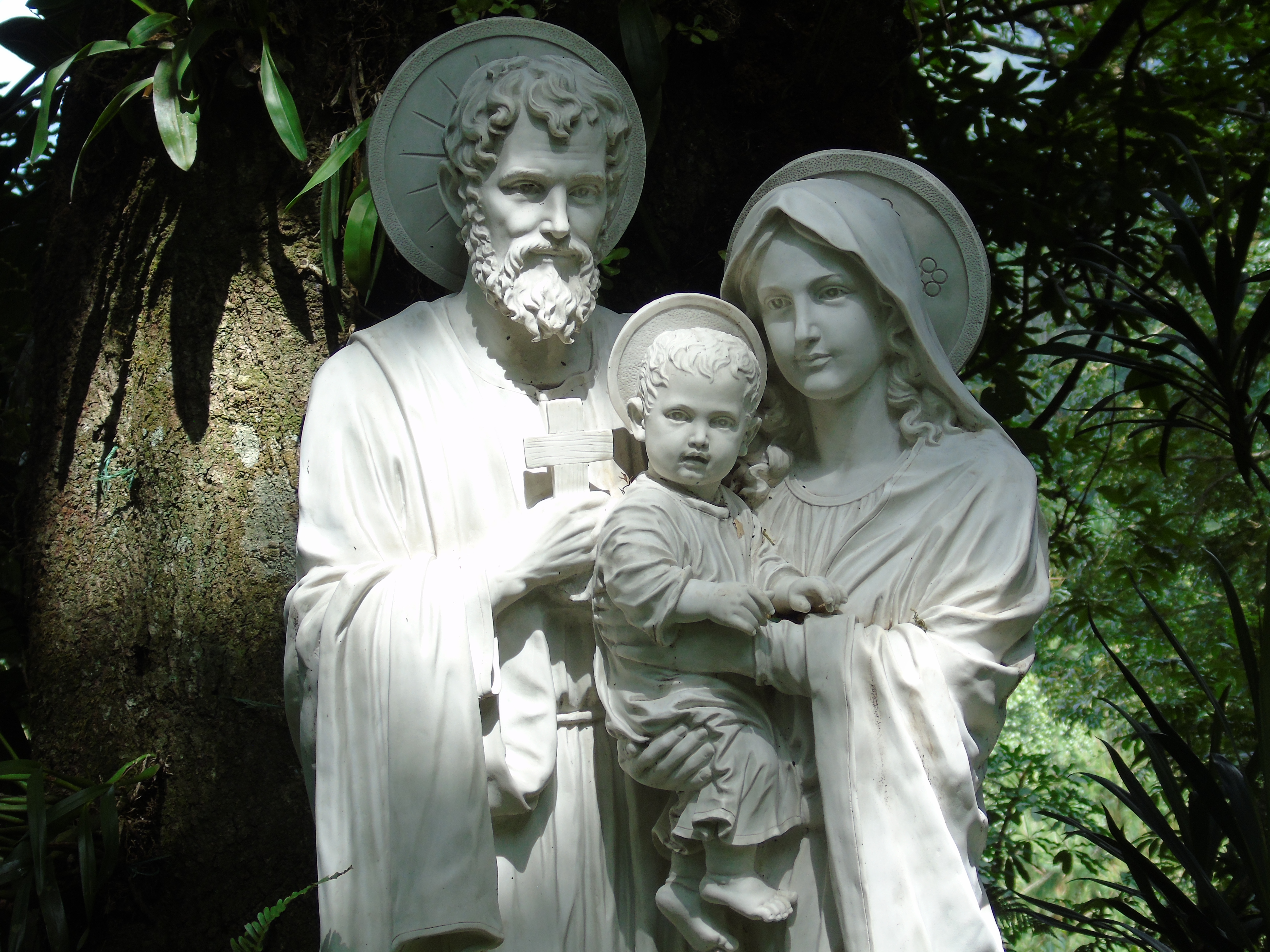As we focus on Joseph, it might be good to dispel some rumors about him, helping us to see him for the glorious saint that he is. The following words rely heavily on Mike Aquilina’s St. Joseph and His World, recently published by Scepter.
As one option for the Gospel today, we hear of Joseph’s first encounter with the archangel Gabriel, in which he is told not to be afraid to take Mary as his wife. What is going on here? Was Joseph, the Just Man, planning to do something unjust?
Joseph lived in the small town of Nazareth, named after the Messianic title of “Branch,” a term for the offspring of David. The inhabitants of Nazareth were descendants of King David, eagerly anticipating and praying for the coming of the Messiah. They did not know exactly when he would come, but they knew he would come from their line, and they waited in hope.
In normal Jewish society, many marriages would be arranged when the spouses-to-be were very young, and then were solemnized later with erusin, a betrothal. This involved formal terms and gifts from both families, and after this ceremony the bond could only be broken by divorce. Notice that here the couple is united in a solemn bond, but this is not quite a marriage; it is breakable by divorce. This was the state of Joseph and Mary. The marriage was finalized, and then (usually) consummated, after a ceremony called kiddushin (sanctities).
Adultery was a capital crime, so Mary would have been stoned if guilty. Divorce would have been the logical option here, but a desire to preserve Mary from this punishment doesn’t mean that Joseph actually suspected her of adultery. He may have just been confused, or he may have known exactly what was happening, intending to lay low and give Mary space, only presuming to assist if asked by the Lord.
Which was it? We are permitted to believe different interpretations of this text, but it makes sense to say that St. Joseph understood that Mary really did conceive of the Holy Spirit. She may have told him as much, and he had no reason to distrust her, likely being childhood friends in a small town. He would have had deep knowledge of the Messianic prophecies. Joseph knew that the Messiah was coming from his people, and he could have gathered from Isaiah that he would come from a virgin. Upon finding out that this virgin was his betrothed, he was probably struck with awe.
This is especially persuasive when we consider that St. Joseph had a special relationship with St. Gabriel the Archangel. His vision in our Gospel may not have been the first, and it certainly wasn’t the last. St. Joseph understood that God works miracles, and he was ready to drop everything and follow God’s will as soon as it was made clear to him. He followed Gabriel’s advice and took Mary as his wife, and they dedicated themselves to bringing up the Messiah, following a tradition of celibate asceticism often practiced in the Essene community, with which they were likely associated.
This day is a good opportunity to reflect on the virtues of St. Joseph, a powerful intercessor sporting titles like “Terror of Demons.” Dying as he did in the presence of Our Lord and Our Lady, he is the patron of a happy death. As is clear in his conduct surrounding the Incarnation, he is a prudent, patient, understanding, and just man ready to stand by his loved ones no matter the cost. Glorious St. Joseph, foster father of the Savior, spouse of Our Lady, pray for us!
 David Dashiell is a freelance writer, editor, and proofreader based in the Pittsburgh, Pennsylvania area. His writing has been featured in Crisis Magazine and The Imaginative Conservative, and his editing is done for a variety of publishers, such as Sophia Institute and Scepter. He can be reached at ddashiellwork@gmail.com.
David Dashiell is a freelance writer, editor, and proofreader based in the Pittsburgh, Pennsylvania area. His writing has been featured in Crisis Magazine and The Imaginative Conservative, and his editing is done for a variety of publishers, such as Sophia Institute and Scepter. He can be reached at ddashiellwork@gmail.com.
Feature Image Credit: revmen, https://www.cathopic.com/photo/20349-sagrada-familia
